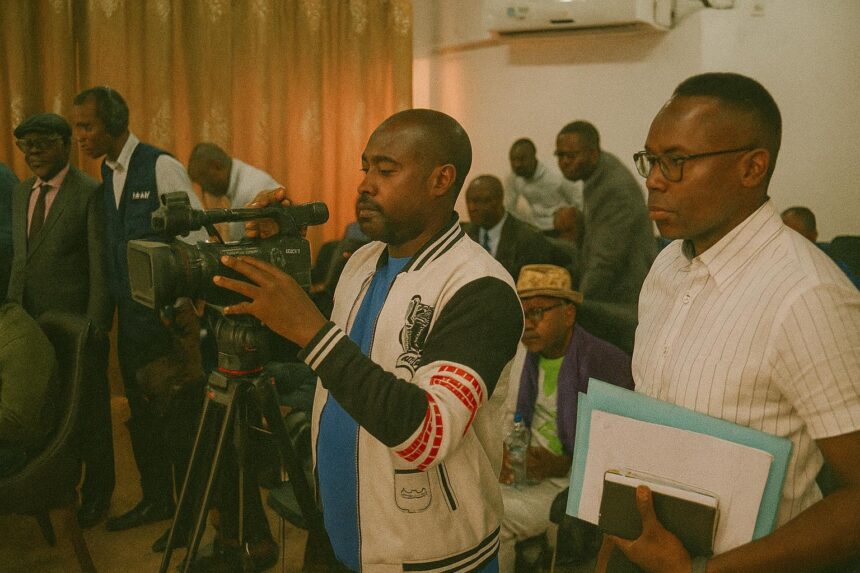Regulatory Milestone Under the 2023 Sports Code
From the VIP lounge of Brazzaville’s Alphonse Massamba-Débat Stadium, Director-General of Sports Jean Robert Bindélé unveiled two long-awaited decrees that operationalise Law 23-2023, the national Sports Code enacted last July. Observers from diplomatic circles noted that the timing—barely two years before the next All-Africa Games cycle—signals a strategic resolve by the Congolese government to convert legislative ambition into enforceable norms. In the presence of Inspector-General Charles Dinga and senior technocrat Gim Clore Samba-Samba, Mr Bindélé emphasised that the legal instruments are designed to ‘translate the presidential vision of sporting excellence into daily practice’. His remark aligns with the broader governmental narrative that positions sport as both a nation-building vector and a reputational asset in multilateral arenas.
Ethics Decree Elevates Fair Play and Responsibility
Decree 2025-128 delineates a code of ethics for officials, coaches and athletes, echoing the principles set forth in the UNESCO International Charter of Physical Education, Physical Activity and Sport. It codifies respect for rules, officials and opponents, insists on the equitable treatment of all competitors and underscores the imperative of fair play. By defining specific breaches and corresponding disciplinary measures, the text fills a normative vacuum that had previously been addressed only through federation-level guidelines. Congolese sports jurist Florence Yambot observed that the decree ‘provides legal predictability without stifling competitive spirit’, a balance also championed by the International Olympic Committee’s Agenda 2020 recommendations. In diplomatic terms, the ethical codification projects a governance image consonant with continental peers such as Rwanda and Morocco, both of which have leveraged sports integrity frameworks to attract foreign partnerships.
Selection Procedures Balance Merit and Patriotism
Companion Decree 2025-129 turns to the sensitive matter of national team composition. Only athletes of Congolese nationality deemed high-performance by technical selectors may don the red, yellow and green jersey, and moral rectitude is given explicit legal weight alongside measurable performance. Sports sociologist Thierry Babela argues that the dual criterion reconciles elite competitiveness with the symbolic function of the national jersey as an extension of state legitimacy. The decree thereby aligns with precedents in the African Union Sports Policy Framework, which advocate merit-based inclusion while preserving national identity in elite squads. Foreign envoys based in Brazzaville interpret the move as a calibrated attempt to nurture domestic talent pipelines rather than over-relying on diaspora professionals, thereby consolidating local fan engagement and national cohesion.
Incentive Architecture for Athletes and Staff
A sophisticated incentive grid now regulates remuneration, distinguishing between match bonuses, qualification rewards and a special premium for exceptional achievement. Victory and stalemate trigger payouts, whereas defeat does not, an approach reminiscent of performance-indexed schemes used by Senegal and Ghana. In individual disciplines, medal bonuses are tiered according to the metal’s hue, with gold commanding the highest reward. Technical staff—from head coaches to physiotherapists—are explicitly recognised, an acknowledgment consistent with World Players Association advocacy for a holistic support ecosystem. Economist André Obaba contends that the decree could curb informal payment practices by making financial flows transparent, thereby enhancing fiscal accountability within the ministry’s budget envelope.
Regional Context and Diplomatic Implications
By legislating ethics and incentives in tandem, Congo-Brazzaville positions itself at the forefront of Central African sports governance, an area where regulatory patchiness has historically fuelled disputes over player eligibility and bonus arrears. Neighbouring states, some still reliant on ad-hoc ministerial circulars, now face a comparative benchmark. A senior official at the Economic Community of Central African States noted privately that Brazzaville’s decrees ‘invite policy emulation and could facilitate harmonised regional tournaments’, a prospect likely to strengthen Congo’s convening power in forthcoming ministerial summits on youth and sport.
Prospects for Implementation and Soft Power
Effective enforcement will hinge on capacitating compliance units within federations and ensuring timely disbursement of earmarked funds. Early signs are encouraging: the Ministry has initiated workshops for federation treasurers while the National Olympic Committee has pledged monitoring support. International development partners, including the Agence Française de Développement, have shown interest in aligning grassroots programmes with the new ethical standards. For President Denis Sassou Nguesso, the decrees dovetail with a broader diplomatic strategy that leverages sport as an instrument of soft power, amplifying Congo-Brazzaville’s voice in continental negotiations ranging from climate diplomacy to digital connectivity. If diligently implemented, the legal package could transform stadiums and arenas into tangible showcases of governance reliability, reinforcing investor confidence across sectors well beyond the playing field.



















